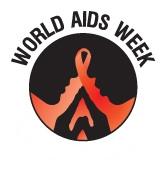This week was World Aids week, so we talked about the difference between HIV and AIDS, how it effects your immune system, and how one would alter their diet and food handling under these circumstances.
- HIV = Human Immunodeficiency Virus
- AIDS = Acquired Immunodeficiency Syndrome
About 70 000 Canadians are currently HIV +. HIV is the virus that causes AIDS. A person can get AIDS after a prolonged period of being infected by HIV and if they do not care for that illness properly. Most common ways of being infected include:
- Blood transfusion (sharing needles, medical blood transfusion, tattooing etc.)
- Sexual intercourse
- Open wounds
- Born to a HIV + mother
HIV depresses the immune system by hijacking the hosts DNA and it replicates itself, which eventually breaks down the hosts immune (CD4-T cells). A person can live for a long time without feeling any symptoms. However, people are more vulnerable to opportunistic infections. AIDS is the result of uncontrolled symptoms resulting from HIV.
Food and Nutrition: Weight loss is a major issue, so it is recommended 20-30% of an energy (calorie) increase is necessary, mostly from carbs. Some micronutrients may be necessary.
Safe food handling is essential. Avoid raw meat sources such as runny eggs, deli meats, ceviche and carpaccio for example. Some molded cheeses should also be avoided. Because the immune system is depressed overall, all foodsafe principles apply, such as keeping cold foods cold and hot foods hot and avoiding cross contamination.
The good news is, there have been many medical advances and research related to HIV/AIDS and it is becoming more manageable to live with.
Resources:
www.aidsvancouver.org
HIV Helpline: 604.696.4666
HealthLink BC: 811
To listen to the full clip, please click here.

